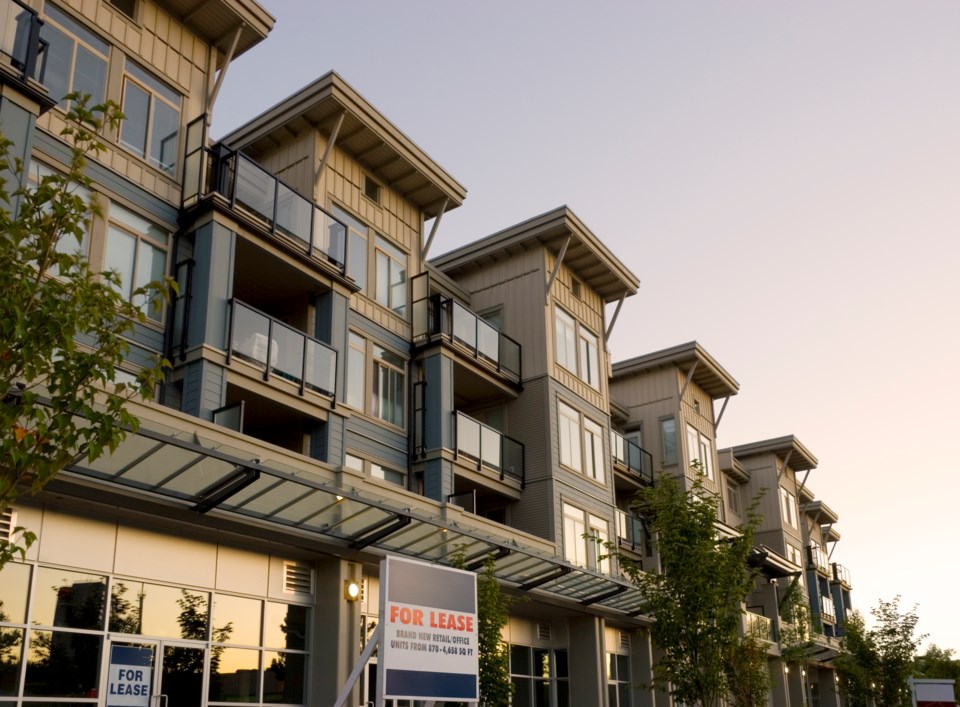New research shows that B.C.'s COVID-19 evictions moratorium achieved its goals, while simultaneously exposing deficiencies within the province's Residential Tenancy Branch (RTB).
The number of evictions filed to the RTB decreased during the time that the moratorium was put in place from March to September 2020.
Landlords filing to evict a tenant for unpaid rent or utilities fell by 53 per cent between 2019 and 2020, “but rebounded with a 75 per cent increase between 2020 and 2021,” said the Feb. 29 University of British Columbia (UBC) report.
“Our report really points to the fact that the eviction moratorium did make a difference in terms of stopping orders of possession,” said Alina McKay, a postdoctoral researcher at UBC and one of the authors of the report.
The research also showed that the highest rate of evictions was seen in Surrey, where there were 5.3 filings per 100 renter households in 2020.
The higher rate of evictions also coincides with an “above average number of households in core housing need, above average number of households that identified as Southeast Asian, South Asian, West Asian, Korean, and an above average percentage of the population that was receiving employment insurance and COVID-19 benefits,” said the report.
During the COVID-19 pandemic, B.C. implemented government policy aimed at protecting households impacted by pandemic layoffs and to support the wider effort of keeping people safely distanced, said the report. During this time, landlords could not evict tenants but were still able to file with the RTB to do so.
During the moratorium, the proportion of filings that resulted in an eviction stayed at relatively the same rate, favouring landlords over tenants in both "ruling and response time."
The time to reach a decision for all filings at the RTB increased by about 40 days to 84 days between 2020 and 2022, said the report.
A filing made by a landlord to evict due to unpaid rent or utilities would typically take 50 to 60 days to reach a decision, but a filing made by a tenant to dispute unpaid rent or utilities would take closer to 100 days to reach a decision.
The B.C. government said last December that there has been a “48 per cent reduction in all tenancy dispute hearing wait times, including down to nine weeks for a standard hearing from about 16 weeks a year ago.”
Filling the gaps
While B.C.’s policy to protect renters from evictions has the intended outcome, it highlights the lack of tools “that decision makers had at the [RTB] to think about the impacts of COVID-19 and what those might be on tenants,” said McKay.
One of the gaps is a lack of alternatives to eviction that are available to adjudicators such as repayment plans and resources or additional supports for landlords who might be receiving rent. McKay said that resources such as these are available in Ontario.
In addition, rent for an occupied two-bedroom unit in Metro Vancouver is $2,175 in 2023, while the asking rent for a vacant unit is roughly 20 per cent higher at $2,608, said the report. Rent increases in B.C. are now capped at 3.5 per cent for 2024.
“That creates a lot of incentives to look for ways to force a tenant to move …, which this report didn't look at specifically, but we've heard anecdotally that is happening quite a bit,” said McKay.
She added that more data needs to be made available when it comes to the type of landlord that is filing with the RTB.
“Is this a mom-and-pop secondary suite that this is happening in or is this a financialized landlord? Are all of the evictions that are happening in Surrey in this one particular building with a terrible landlord? Those are things that we just can't speak to in this report,” she said.
While the RTB records this data, McKay said that this is not shared through freedom of information requests made by the researchers due to privacy concerns.
“That type of analysis is being done in the Greater Toronto Area, Ottawa and other areas in Ontario, where property level data is available,” she said.
“If we want to have responsive policy that actually protects affordability in B.C., which is one of the government’s current major platforms, there has to be a better way of actually figuring out who's evicting and some of the reasons why.”



